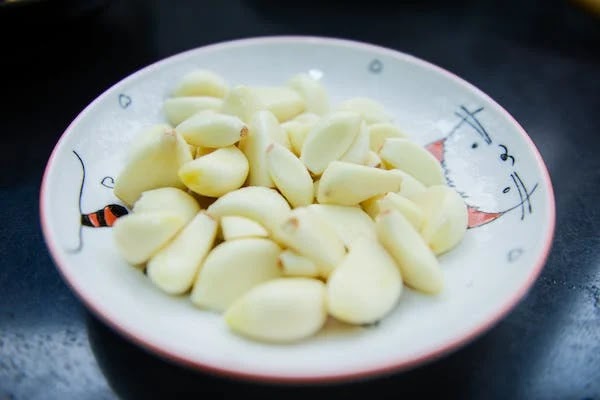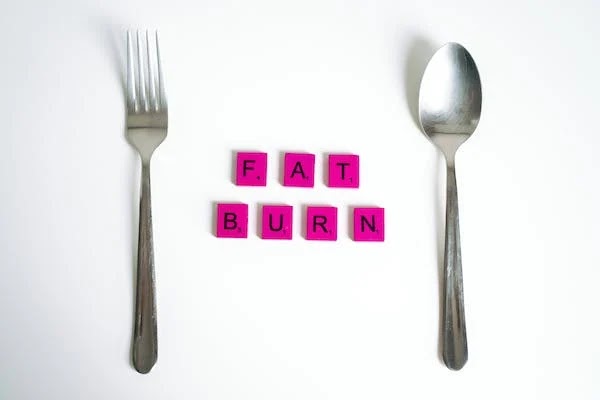What to eat to increase your energy level ? How to get better energy from food, naturally, without depriving yourself | Nutrition
Are you that person who wakes up feeling groggy even though you're almost 90% sure you got the recommended 6-8 hours of sleep? Or maybe you're the other person who wakes up feeling restless because you know for sure you didn't get enough sleep because you tossed and turned all night, felt restless, or couldn't fall asleep right away. Either way, you're definitely that person who more often than not always says how tired you are throughout the day, no matter what.
If any of this sounds like you, we have good news for you. You are not alone! Being tired often is extremely common (especially if you're a parent), but keep in mind that it's not necessarily normal. Just because it's common doesn't make it normal. Unfortunately, our culture has embraced the idea that being tired and busy is something to wear as a badge of honor, and that's just not the case.
In order to have adequate sustainable energy, we must first acknowledge this truth and that chronic fatigue is something that definitely needs to be addressed.
More Read : How many calories should you eat each day? What is a calorie? How many calories require per day ?
That being said, there's a good chance you're just missing some essential nutrients that are causing you to deplete energy faster than your body can keep up. I'm talking about your macronutrients, or what may be better known as "macros."
We often don't think too much about our macros unless you're someone who counts them because we're generally always eating them no matter what. Let's break them down.
What are macronutrients ?
Macronutrients are specific components of food that are necessary for your body to function properly. We generally need these nutrients in greater amounts in our diet to create sustained energy and maintain our body structure and major systems. In order to have enough energy to carry out daily activities, it is essential that you have as many macronutrients as possible in your diet.
There are three broad categories of macronutrients: protein, carbohydrates, and fat. I know what you're thinking, and yes, we absolutely need all three to not only survive, but thrive.
Proteins
There is much debate in the nutrition world about how much and what type of protein a person should consume. Some say high-quality animal protein is needed for optimal health and energy, while others advocate plant-based options. It is important to know that what works for you may not work for someone else and vice versa. It's always best to experiment with different types to find what works best for your body so you can successfully lead to better energy.
The role of proteins in the body
Proteins play a major role in tissue structure. Think of protein as the building blocks that form the basis of your organs, tissues, muscles, hair, skin, nails, bones, tendons, ligaments, and even blood plasma. I call them the build and repair team.
Proteins are also involved in metabolic, transport and hormonal systems. They help create enzymes that regulate our metabolism and acid-base balance to aid homeostasis (a neutral environment) in our body.
Basically, without protein, we wouldn't have a solid, basic support system.
More Read : How To Look Younger ? | Tips for looking Younger | Women's Health
Major food sources of protein
- Legumes – beans, peas, lentils, chickpeas, black beans, peanuts
- Soy-based products – tofu, tempeh, soybeans
- Nuts and seeds
- Whole grains – brown rice, whole wheat, oats, corn, quinoa, millet, buckwheat, amaranth
- Alternative meat products (often made from pea/chickpea protein, soy protein, etc. – seitan)
- Leafy greens – spinach, cabbage, broccoli, collards, bok choy, romaine, watercress
- Animal sources – meat, eggs, dairy products, poultry, fish, bee pollen
Carbohydrates
Like it or not, carbohydrates are central to all cultures around the world, and there's a reason why they exist as one of the three macronutrients. Like protein, the amount and what types of carbohydrates are always a big debate and very often at the center of many different dietary theories in one way or another.
Again, how many and what types will always depend on the person. Experiment to see what works best for your body.
The role of carbohydrates in the body
Carbohydrates are our body's main source of energy. Think of carbohydrates as fuel for energy. This is what we need to fill our "gas" tank, especially during high-intensity exercise or aerobic (endurance) activity.
Carbohydrates also help preserve muscle mass during exercise and provide fuel for the central nervous system, aka your brain! Ideally, 45-65% of our calories should come from carbohydrate sources, and this varies depending on the level of activity one engages in. For example, the higher the level of activity, the higher the amount of carbohydrates needed may increase.
Major food sources of carbohydrates
- Cereals - prefer whole grain products
- Fruit
- Vegetables
- Dairy products
- Sugar – raw, cane, honey, pure maple syrup are the best sources of sugar/sweetness
Note: The American Heart Association (AHA) recommends no more than 6-9 teaspoons of sugar per day; 4 grams of sugar equals 1 teaspoon.
Fats
Trance. Saturated. Omega 3. Omega-6. Omega-9. Polys. Monos. So many fats to watch! And information in the media and science seems to be conflicting about which fats are healthy and which are not. It's no wonder that many people are confused about what types of fat they should eat—and which types they should avoid.
I think it's safe to say that we all know by now to absolutely avoid trans fats from highly processed foods. Foods with hydrogenated oils should generally be avoided as much as possible. Trans fats occur naturally in beef, lamb, butter fat and some dairy products.
The role of fats in the body
Fats are our body's energy reserve. So fats are fuel and are also essential for protecting our vital organs and transporting fat-soluble vitamins and minerals. While protecting our organs, our body uses fats to help insulate the body to help maintain temperature.
Around 60% of the human brain is made up of fat, so it's safe to say that fat, while often controversial, is, like carbohydrates, another essential macronutrient that our bodies need to thrive. Without quality and healthy sources of fat in our diet, we are depriving our brain of its integrity and ability to perform on a daily basis.
Food sources for good healthy fats
- Oils – preferably olive, avocado, coconut
- Nuts – Walnuts are high in polyunsaturated fats, which help increase good HDL cholesterol
- Seeds - flax, chia, pumpkin
- Avocado
- Meat, fish and dairy products
Those following a predominantly plant-based, vegetarian or vegan diet/lifestyle may consider taking an omega-3 supplement, often made from flax or algae.
At the end of the day, if you want better energy, it's great to start with food. I recommend evaluating your current income and adjusting accordingly based on your own unique needs. Every person is different and one person's food can be another person's poison. Get a good idea of how your body feels when you eat different types of foods, and then use that as a guide to determine which foods will give you the best energy.
A general rule of thumb when eating for energy is to include as many whole foods as possible in your diet, eat the rainbow and eat fresh, local, seasonal, organic whenever possible and always listen to your body. Your body is smart, intuitive and will always give you the signs you need to do the best for you!

.jpg)




.webp)
